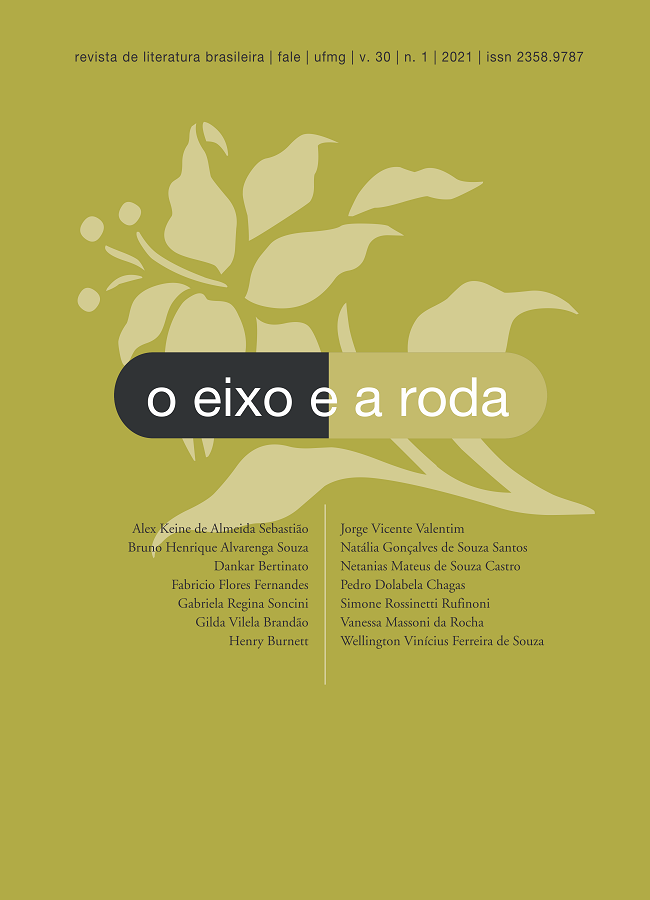Morality in Asfalto selvagem
Nelson Rodrigues between Two Times of the Brazilian Novel
DOI:
https://doi.org/10.17851/2358-9787.30.1.31-57Keywords:
Nelson Rodrigues, morality, “1930s novel” in Brazil, theory of affordances, history of Brazilian novelAbstract
We compare Asfalto selvagem to the contemporary and the immediately preceding novelistic production in Brazil, in an attempt to understand why Nelson Rodrigues’s novels have received little attention from our literary critique. More specifically, we compare his approach to morality with what prevailed in the “1930s novel”, here analyzed in two representative works: Octávio de Faria’s “Bourgeois tragedy” and Jorge Amado’s Captains of the sand. While in the 1930s a normative and dualistic morality prevailed, with the staging of conflicts between two visions as a means to establish the “right views” as moral guides to the readers, in Rodrigues there is no such ostensive moralization, but the display of textual elements that suggest moral inferences to be made by the reader himself. Through Webb Keane’s concept of “ethical affordances” we analyze how the characters’ rationalizations and justifications also build a paradoxical representation of morality and a “neurotic” pattern of behavior, again in contrast with preceding and contemporary novels in Brazil. In the end, we suggest that four characteristics of Rodrigues’s novels might explain their small academic repercussion: the use of humor in the dramatization of “sin”; the refusal of moral and political activism; the absence of Brazil (as society, history and culture) as a dominant theme; a paradoxical moral perspective that did not recognize religion, family, the State, political ideologies or any work ethic as sources of authority.
References
AMADO, Jorge. Capitães da areia. 19. ed. São Paulo: Companhia das Letras, 2009.
BUENO, Luís. Uma história do romance de 30. São Paulo: Editora USP; Campinas: Editora Unicamp, 2015.
CHAGAS, Pedro Dolabela. Lygia Fagundes Telles e o Bildungsroman no Brasil. Estudos De Literatura Brasileira Contemporânea, Brasília, v. 56, p. 1-12, fev. 2019. DOI: https://doi.org/10.1590/2316-4018566.
FARIA, Octavio de. Tragédia burguesa I: Mundos mortos. 4. ed. Rio de Janeiro: Editora Record, 1969.
FARIA, Octavio de. Tragédia burguesa II: Os caminhos da vida. 2. ed. Rio de Janeiro: Editora Americana, 1971.
KEANE, Webb. Ethical Life: Its Natural and Social Histories. New Jersey: Princeton University Press, 2016. DOI: https://doi.org/10.1515/ 9781400873593.
MAGALDI, Sábato. Prefácio. In: RODRIGUES, N. Teatro completo, 3: tragédias cariocas I. Rio de Janeiro: Nova Fronteira, 1985.
PELLEGRINO, Hélio. A obra e o beijo no asfalto. In: RODRIGUES, N. Teatro completo, 4: tragédias cariocas II. Rio de Janeiro: Nova Fronteira, 1990.
RIBEIRO, Léo Gilson. O sol sobre o pântano: Nelson Rodrigues, um expressionista brasileiro. In: RODRIGUES, N. Teatro completo, 4: tragédias cariocas II. Rio de Janeiro: Nova Fronteira, 1990.
RODRIGUES, Nelson. Asfalto selvagem: Engraçadinha, seus amores e seus pecados. São Paulo: Companhia das Letras, 1994.
RODRIGUES, Nelson. Flor de obsessão. São Paulo: Companhia das Letras, 1997.
SOUZA, Pompeu de. Introdução. In: RODRIGUES, N. Teatro completo, 4: tragédias cariocas II. Rio de Janeiro: Nova Fronteira, 1990. Recebido em: 8 de julho de 2020.










